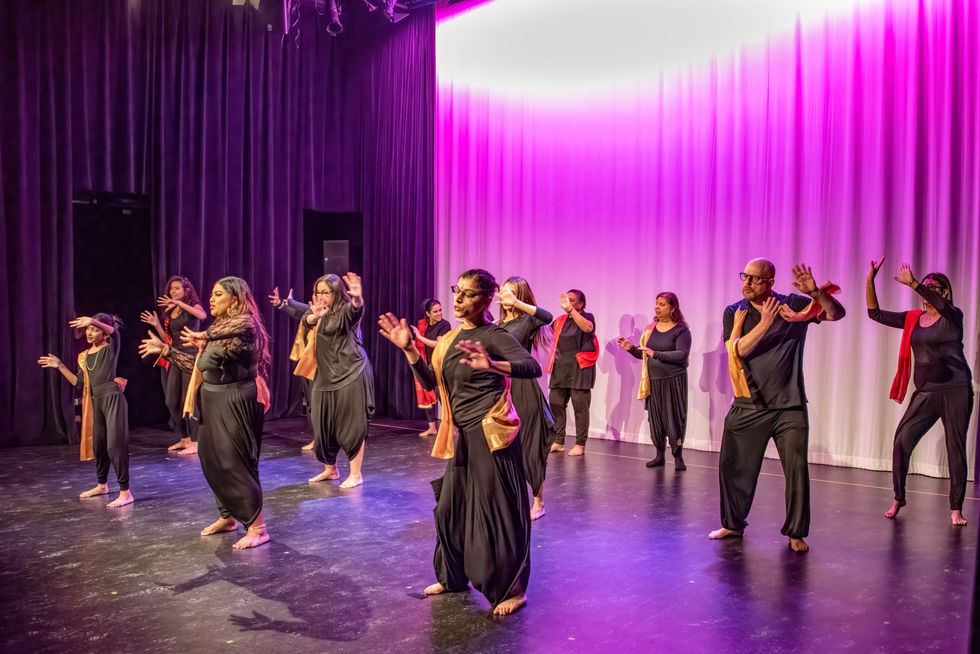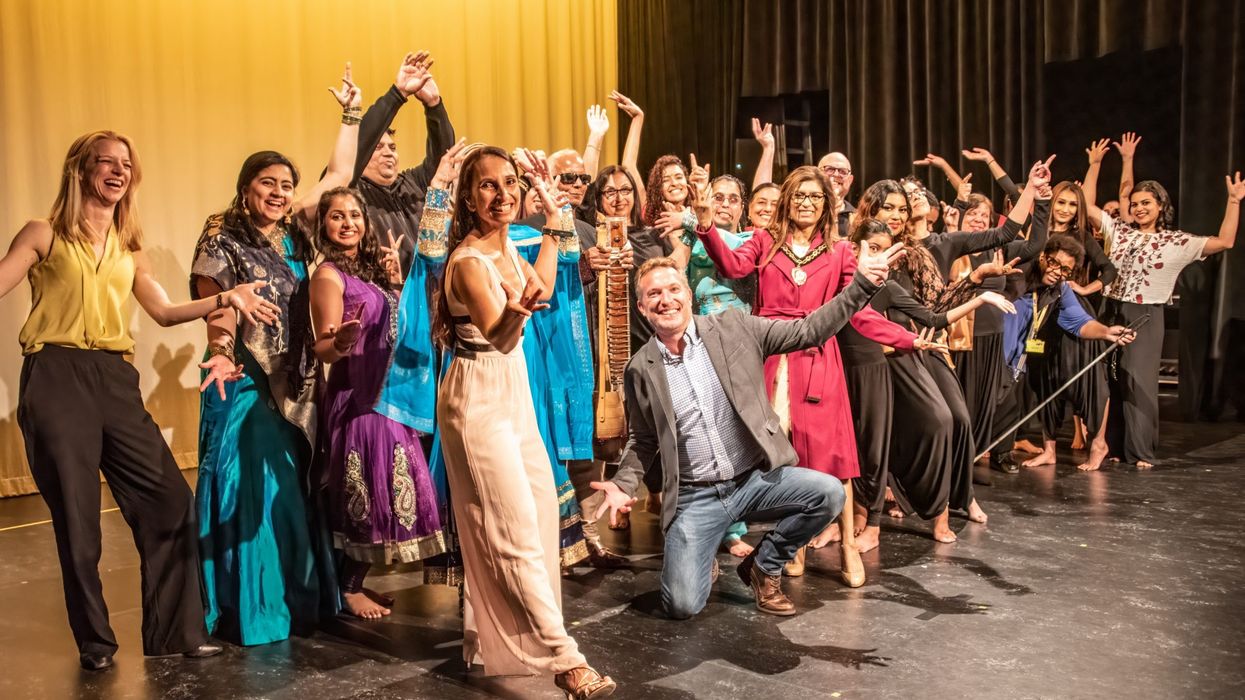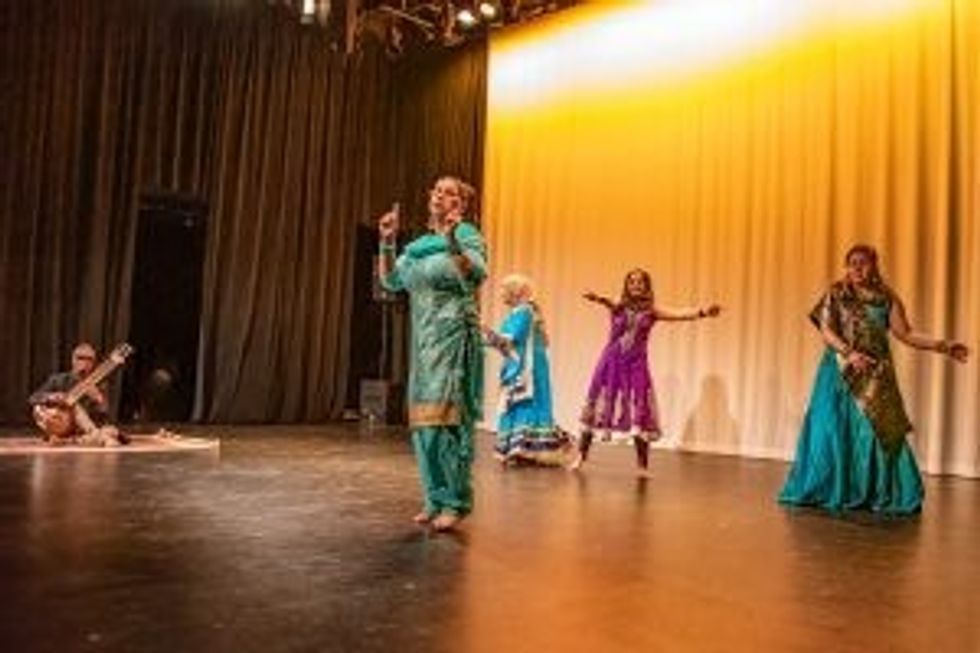DANCE is being used to break stigmas and help disabled people to become more active at a studio in London.
Dr Rashmi Becker founded Dance Dosti, with Metro Blind Sport and Vision Foundation, during the Covid-19 pandemic, after seeing the disproportionate impact that Covid had on both the south-Asian community and people with disabilities.
“I wanted to try to do something about it through my own work, in terms of particularly the social isolation …both disabled people and people from a south Asian background were experiencing,” she said. In addition, through Becker’s work with her brother, who is visually impaired and has autism, she gained first-hand experience of the need for diverse disability support.
Dance Dosti provides videos and in-person workshops in partnership with Metro Blind Sports which showcase many different styles of south Asian dance. The project encompasses over 100 workouts in Gujarati, Hindi, Bengali and English. As well as videos, there are also audio workouts. The project has operated across London in five areas, Newham, Ealing, Brent, Tower Hamlets and Harrow.

Style-wise, the classes focus on south Asian dance, ranging from Bollywood to classical Indian. In addition to this, her main studio Step Change studios teaches a wide range of styles including hip hop, Latin and ballroom dance.
This campaign for diversity stemmed from a number of charities admitting to Dr Becker that while they want to improve their diversity, they didn’t know how to go about it. “I had a conversation with a number of charities and we talked about it, and they wanted to appeal to more diverse people, but they were feeling they didn’t feel like they knew how to and how to engage with those communities,” she said.
Carrying out the project hasn’t been without its challenges as Dr Becker says there has been a lot of stigma from multiple sources. She explained two of the most common ones were “people feeling like they’re not allowed to take part or they should be hidden from public view and it’s not appropriate to dance if you have a disability…and then if you’re Asian and a woman again, there are certain barriers and, exclusions…in terms of being able to take on dance.”
Dr Becker has also heard from her participants that a lack of understanding around both cultural sensitivities and disability has prevented them from being involved in classes previously. “They have been told they can’t take part so many times in different activities…people have said to them we don’t feel comfortable teaching someone that’s blind or you can’t join our dance class or our fitness class or even our gym,” she said.
To ensure that Dance Dosti classes are inclusive, Dr Becker has made sure that while they are adapted to different abilities, the classes are still challenging for her pupils. One way she does this is through having showcase evenings for her students. This was a major step for both Dr Becker and her students “if we’d set that goal in the first day in class, people would have been very nervous…but by the time we were getting towards the end of the programme, they were really excited…they were really thrilled ...to show themselves and present who they are,” she said.
People attending a Dance Dosti class can expect all the elements of a regular class, but with an accessible environment. From transport assistance, to sighted volunteers and chair choreography, the programme aims to help disabled people to develop independence and confidence, both in dance and outside it.
The response to Dance Dosti has been overwhelmingly positive, with the classes being covered in the national media and praised by charities that support blind people in the health and fitness sector. “Overall, the response has been really positive from the sector. I’ve been really thrilled by the response from participants themselves, they all want to continue. They want to be able to try new things,” she said. Because of Dance Dosti, the participants can also experience the well-documented benefits that dance and movement can have on both their physical and mental health. Rebuilding socialising confidence after pandemic shielding has been another benefit of the project.
For Dr Becker, the project is important because of the opportunities it brings. “These opportunities don’t exist and every single person has the right to be able to take part in physical activity, it is so important. Looking after our health is something that is a right, it’s not something that just the privileged people can enjoy,” she said.
As a consequence of the project, she’s also been able to work with leading disability charities on how improve access to mainstream classes. “Dance is one of the most adaptable and accessible activities you can have because anyone can dance you know, you just put on music and it’s about interpreting the music in your own way,” she said.
While the project is coming to an end, Dr Becker has big plans for the future. “We’re working towards various performances and events around the jubilee coming up, as well as the community side,” she said. In addition to these, Step Change Studios' Conversations With Carers project is being shown at at the Mayor of London’s Liberty Festival later this year.





